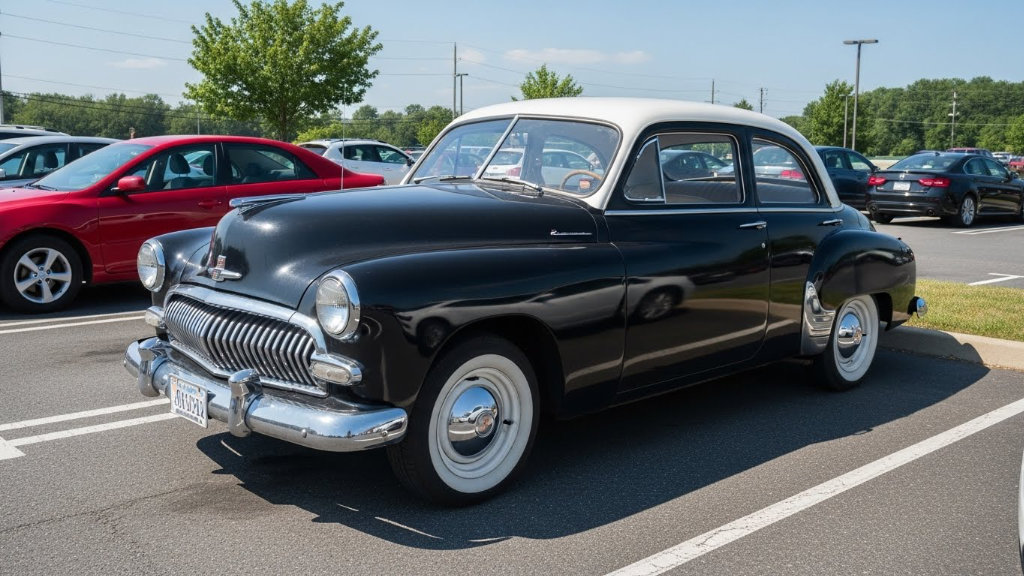Connecticut has a unique approach to vehicle sales tax that can be confusing for many buyers. Whether you’re purchasing a new car, a used vehicle, or registering a vehicle purchased out of state, understanding the nuances of Connecticut’s tax system is key to saving money.
This guide explains how vehicle sales tax works in Connecticut, highlights key exemptions and variations, and offers practical tips to help you save thousands on your next vehicle purchase or registration.
Connecticut Vehicle Sales Tax Overview
Connecticut charges a flat sales tax rate of 6.35% on most vehicle purchases, regardless of the location where the vehicle is purchased or registered. Unlike some states, Connecticut does not have local vehicle sales taxes; the statewide rate applies uniformly.
Key Points About Connecticut’s Vehicle Sales Tax:
- The 6.35% tax is applied to the purchase price or fair market value of the vehicle.
- Sales tax is collected when you register the vehicle with the Connecticut Department of Motor Vehicles (DMV).
- There are no additional local sales taxes on vehicle purchases.
For more detailed information on Connecticut’s sales tax rates, you can visit the official page: Connecticut Department of Revenue Services – Sales and Use Taxes.
Special Considerations for Connecticut Vehicle Sales Tax
Connecticut has several unique rules that impact how much tax you owe:
- Trade-Ins: When you trade in a vehicle to a dealer, you only pay sales tax on the difference between the new vehicle’s price and your trade-in value, which can reduce your tax liability.
- Private Party Sales: Sales tax is calculated based on the purchase price or the vehicle’s fair market value (whichever is higher), even if the sale is private.
- Out-of-State Purchases: If you buy a vehicle out of state but register it in Connecticut, you must pay Connecticut sales tax on the purchase price or fair market value.
- Exemptions: Some transactions, such as gifts between family members or vehicle transfers due to inheritance, may be exempt from sales tax.
How Vehicle Sales Tax Is Collected in Connecticut
In Connecticut, sales tax is generally paid directly to the Department of Motor Vehicles (DMV) at the time of vehicle registration. This means that even if you purchase a vehicle from an out-of-state dealer, you’ll need to pay the applicable sales tax when you register the vehicle in Connecticut.
For more details on how to register your vehicle and pay the sales tax, visit the Connecticut DMV’s official page: Connecticut Department of Motor Vehicles – Vehicle Registration.
Sales Tax Calculator
To help estimate the sales tax on your vehicle purchase, you can use the Connecticut DMV’s sales tax calculator: Connecticut DMV Sales Tax Calculator.
This tool is especially useful for out-of-state dealers and third-party titling services to calculate the sales tax due when submitting transactions to the DMV.

Tips to Save Thousands on Connecticut Vehicle Sales Tax
Here are strategies to help minimize your vehicle sales tax expenses in Connecticut:
- Use Trade-Ins to Lower Taxable Amount
Trading in your old vehicle when buying from a dealer can significantly reduce the taxable amount on your new vehicle purchase. - Confirm Fair Market Value
For private sales, ensure the fair market value used for tax calculations is accurate to avoid overpaying tax. - Check for Exemptions
Explore eligibility for exemptions such as family gifts, inheritance, or nonprofit transfers to avoid unnecessary taxes. - Work with Vehicle Registration Experts
Services like Ride Legal can help you navigate Connecticut’s registration process and ensure you pay the correct amount of tax.
Example of Vehicle Sales Tax Costs in Connecticut
The table below estimates sales tax amounts based on vehicle purchase prices with Connecticut’s flat 6.35% rate.
| Purchase Price | Sales Tax Rate | Estimated Sales Tax Paid | Total Cost with Tax |
|---|---|---|---|
| $15,000 | 6.35% | $952.50 | $15,952.50 |
| $30,000 | 6.35% | $1,905.00 | $31,905.00 |
| $45,000 | 6.35% | $2,857.50 | $47,857.50 |

What This Means for Your Vehicle Purchase
Connecticut’s uniform vehicle sales tax rate simplifies planning your vehicle purchase costs, but other factors like trade-ins and private sales valuations can impact the final amount owed. By understanding these factors, you can strategically reduce your tax liability and avoid surprises during registration.
Working with knowledgeable professionals and confirming all values used for tax calculations will ensure you maximize your savings and stay compliant with Connecticut’s regulations.
Ready to Save on Your Vehicle Sales Tax in Connecticut?
Connecticut’s vehicle sales tax process may seem straightforward, but nuances in valuation and exemptions can lead to overpayment if not handled carefully. Ride Legal’s experts specialize in Connecticut vehicle registrations and tax compliance, helping you save money and complete your paperwork efficiently.
Contact Ride Legal today to get expert help and save thousands on your next vehicle purchase in Connecticut.
Frequently Asked Questions About Connecticut Vehicle Sales Tax
Q: What is Connecticut’s vehicle sales tax rate?
A: Connecticut charges a flat 6.35% sales tax on most vehicle purchases.
Q: Are local sales taxes added on vehicle purchases?
A: No, Connecticut does not have local vehicle sales taxes. The statewide rate applies uniformly.
Q: How is sales tax calculated on private vehicle sales?
A: Tax is based on the purchase price or fair market value, whichever is higher.
Q: Can trade-ins reduce sales tax in Connecticut?
A: Yes, trading in a vehicle reduces the taxable amount on your new purchase when buying from a dealer.
Q: Where do I pay sales tax on a vehicle purchase?
A: Sales tax is paid directly to the Connecticut DMV at the time of vehicle registration.



